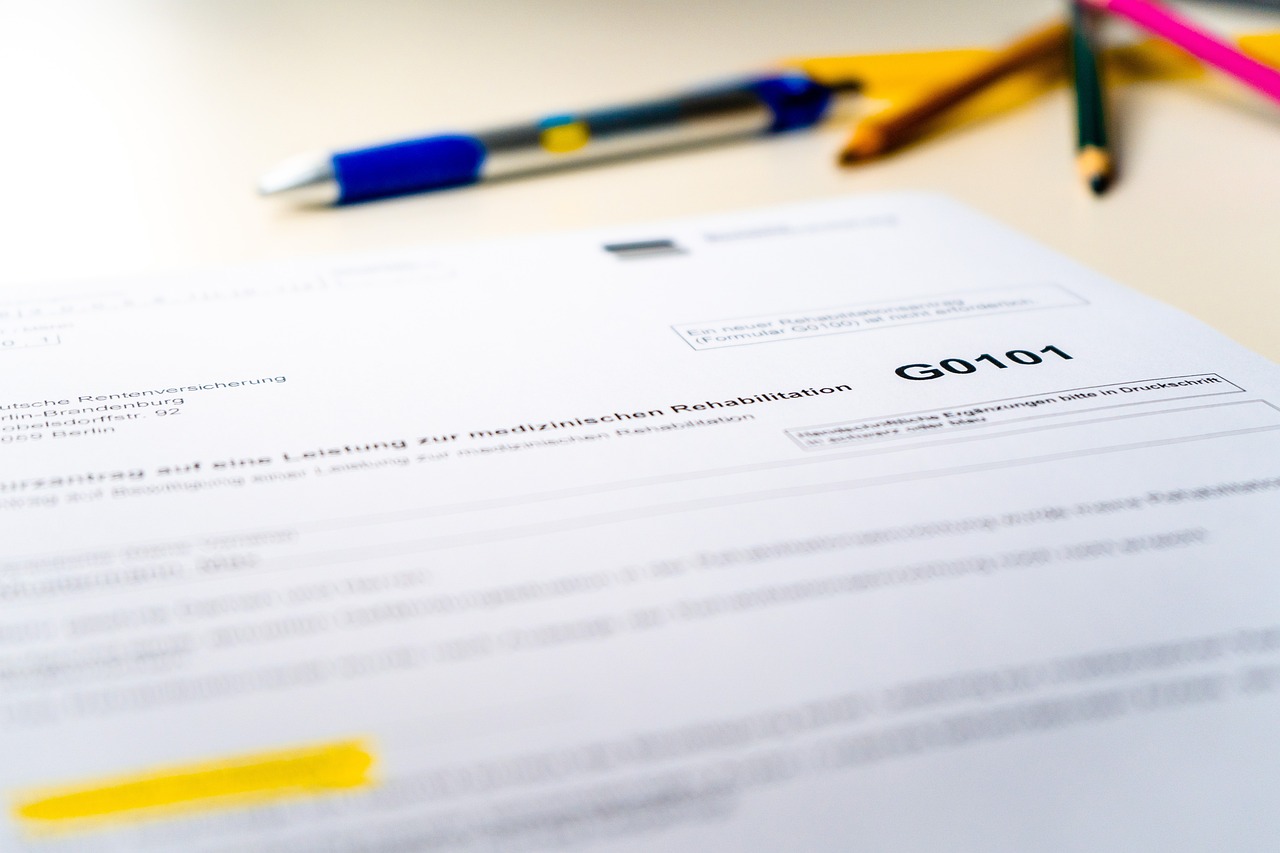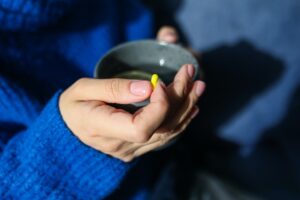There is a major drug and alcohol abuse problem in the Northwest of England, and Burnley is no exception. Many people enter drug and alcohol rehab in Burnely.
The following statistics [1] perfectly illustrate just how much drug and alcohol rehab in Burnley is needed. Medical statistics completed in 2019 [2] have revealed that Burnley has reported over 1,000 people in every 100,000 with drug and alcohol-related health issues.
We have helped countless people access a Burnley located drug and alcohol rehab recovery option to help them overcome addiction once and for all.
Addiction can be wide-ranging and drug and alcohol rehab in Burnley can be for a wide range of things, such as a substance like alcohol or certain drugs such as cocaine, cannabis, heroin and fentanyl, stimulants like mephedrone addiction, sedatives like ketamine, painkiller addictions, prescription drug addiction and even certain behavioural addictions like gambling, video gaming, shopping and even sex.
To start the admissions process at a drug and alcohol rehab in Burnley, call us today on 0800 140 4690

You might be wondering if your or your loved one’s habit is an addiction, [5] what particular conditions define an addiction, [6] and where to draw the line and enter drug and alcohol rehab in Burnley.
Alcohol addiction, drug abuse and behavioural addiction all have the possibility to ruin a person’s health and lifestyle if they do not attend drug and alcohol rehab.
Addiction researcher Daria J. Kuss’s study [7] defines addiction as ‘mental preoccupation, neglect of personal life, escapism, mood modifying experiences, tolerance, and concealing the addictive behaviour’. [8]
Psychological drug and alcohol addiction signs [12] can take a wide range of forms and are addressed as a dual diagnosis at drug and alcohol rehab in Burnley, including:
Some of the more distinct physical drug and alcohol addiction signs [15] can develop into extremely serious conditions in serious need of drug and alcohol rehab, including:
As harsh as these conditions are, if a person gets the right help at the right time at drug and alcohol rehab in Burnley for their particular addiction, [24] many of these can be properly managed and even reversed. [25]

Many addictions are characterised by the sufferer’s inability to stop taking substances, [26] even when they want to. Instead, drug and alcohol rehab is needed.
To help people overcome this particular hurdle and to make their rehabilitation journey much safer, medication is widely used.
Naltrexone [27] can help you to manage your triggers at alcohol rehab by reducing your alcohol cravings. [28]
A study conducted by addiction researcher Dr Gillian W Shorter [29] on treatments for alcohol misuse found that alcohol rehab patients given naltrexone had greater outcomes and reduced drinking.
Professional rehab treatment in Burnley is both safer and more effective than attempting to recover without support. [30]

For a substance abuser to make the decision to go to a drug and alcohol rehab in Burnley, they have reached a point where they can’t see a way out.
For some people, seeing their loved ones upset because of their drug or alcohol abuse could be enough to get them to re-assess their lives and enter drug and alcohol rehab.
And yet they may still not seek out help for their addiction via alcohol rehab.
If you’re unsure as to whether attending a drug and alcohol rehab in Burnley is the right choice, call our team on 0800 140 4690

Once a person eventually comes around to the idea that they need help, they will often turn to a drug and alcohol rehabilitation centre.
Here they will go through drug or alcohol detox. This is vitally important if any progress is to be made during drug and alcohol rehab.
For some people, it is imperative to have a clear mind and be free of the harmful toxins from drugs or alcohol in order to start the cycle of recovery at drug and alcohol rehab.
Only in the calm and trigger-free environment of drug and alcohol rehab can individuals gather the strength, willpower and concentration needed to give up their addiction.
There are a number of different drug and alcohol rehabs in Burnley offering different rehab programmes, all of which can benefit you.
When choosing a rehab clinic, it is important to see what addiction treatment methods they use.
Choosing the right addiction rehab clinic in Burnley to go to is just as important as making the decision to go in the first place.
There are drug rehab clinics which offer 12-step rehabilitation programmes, but the issue is these are often not specific enough to offer any real help to people.
A drug and alcohol rehab programme must be tailored to each individual patient, or the chances of defeating those addiction demons are reduced.
Burnley drug and alcohol rehabs are able to offer a customised treatment programme for each patient.
For help choosing othe best possible drug and alcohol rehab in Burnley for you, call our team today on 0800 140 4690

Anyone looking to receive help from drug and alcohol rehab residential facilities in Burnley can expect to pay approximately £500 per day.
This fee covers the cost of their drug and alcohol rehab treatment program and accompanying expenses such as accommodation and meals.
The cost may increase if clients have been advised that they need to undergo alcohol and drug detoxification treatment at drug alcohol rehab.
For a 28-day stay in drug and alcohol rehab, this would amount to £14,000.
This length of stay guarantees an effective and safe service delivered by a reputable drug and alcohol rehab treatment provider.
There are other providers offering treatment programmes from as little as £1,000 a week for a standard rehab treatment facility.
However, if you are looking for a luxury rehab centre, it can cost you £10,000 per week.
The overall cost of drug and alcohol rehab in Burnley can be reduced by sharing a room with others rather than having a room alone.
You can also reduce the cost of drug and alcohol rehab by opting for more basic treatment plans.
NHS and other council or charity-supplied services are, of course, free to access [38] or available for a reduced cost.
Finally, it can be cheaper to select a rehab location further away if staying in the local area is not a priority.
For a more accurate answer to how much your time at a drug and alcohol rehab in Burnley will cost, call us today on 0800 140 4690

Medical health providers such as AXA [39] and BUPA [40] offer health insurance policies that may cover rehab.
These policies will cover the cost of medical and psychological treatments at drug and alcohol rehab for substance use disorders (SUD).
However, it is important to establish the precise terms and conditions of any existing policies you may have to ensure you qualify for coverage of the alcohol drug rehab treatment in Burnley you feel you require.
If your cover is arranged by your employer, then it’s important to ask them to clarify the terms of the policy they have organised for you and inform them immediately of any SUD diagnosis you receive.
Any policy that does underwrite rehab treatment costs should cover the essential aspects of treatment, such as alcohol and drug detox treatment, individual therapy, appointments with psychiatrists and addiction treatment counsellors, as well asthe various costs associated with a stay at a residential centre.
Such policies are less likely to cover luxury extras or holistic therapies and recreational activities at rehab.
It is important to establish what drug alcohol rehab treatment forms the policy does cover and, if appropriate, investigate how much it would cost to upgrade the policy.
Policies are likely to only pay for a 28-day stay in drug and alcohol rehab as this is the standard time that residential rehab lasts.
For addiction advice and guidance in accessing drug and alcohol rehab in Burnley through health insurance, call our expert team today on 0800 140 4690

There have been drastic cuts to funds the government has made available for substance abuse treatment at rehabs over the last ten years.
These cuts have significantly reduced the amount of money available to fund residential rehab places.
There are still a limited number of funding places available for drug and alcohol rehab in Burnley, but many people are competing for these places.
The whole NHS drug and alcohol rehabilitation process is extremely drawn out and arduous, which can demotivate people.
The regional departments throughout the UK responsible for overseeing the budgets have different policies, which makes it difficult to identify a clear nationwide strategy.
When initially referred to a drug and alcohol rehab team in your area by a GP or social work practitioner, clients are steered towards outpatient treatment services to see if this is sufficient to improve their condition.
Some NHS and free or charity-run addiction treatment services available in Burnley include:
Address: 37-41 Westgate, Burnley, BB11 1RY
Telephone: 01254 495 382
Website: https://inspirelancs.org.uk/
Address: CVS Building, 62-64 Yorkshire Street, Burnley, Lancashire, BB11 3BT
Telephone: 0808 164 0074
Website: https://www.brook.org.uk/service/with-you-in-lancashire-young-people-services-burnley-2/
Even though these rehab treatment services are effective and reliable, it is commonly known that there is a higher relapse risk for outpatients.
Anyone who is seeking what residential rehab provides through the NHS must be prepared to play the long game.
They must show determination and patience to obtain residential rehab funding.
As any funding awarded is likely to go to those clients who are in need and who have shown great commitment to becoming sober/abstinent. [41]
It is important to build good relationships with social workers and drug and alcohol teams and to document everything you have done to help yourself, such as attending rehab therapy sessions and addiction support groups.
For help in accessing NHS funding for drug and alcohol rehab in Burnley, call our team today on 0800 140 4690

Usually, most clients enter rehab for 28 days, which is deemed as a sufficient amount of time inside residential rehab for the detoxification and therapeutic processes.
This amount of time away from their usual environment will give them the space and resources to focus on altering their well-established psychological processes at drug and alcohol rehab in Burnley.
The subject will be able to make these changes by engaging in a range of addiction therapies and reflective and spiritual practices at drug and alcohol rehab Burnley.
Many addiction specialists advocate a three-month rehabilitation programme offering the best recovery journey.
However, not many people have the time and money to commit to 90 days in drug and alcohol rehab.
Throughout the 28-day drug alcohol rehab stay, all clients are protected from any people and situations that may trigger a relapse and are monitored closely.
To get a more accurate estimation of how long your time at a drug and alcohol rehab in Burnley will last, give our team a call on 0800 140 4690

All Burnley drug and alcohol rehab centres and local drug and alcohol detox clinics in Burnley will aim to offer a drug and alcohol detox programme to help wean people off of their addictions.
Alcohol and drug detoxification at drug and alcohol rehab in Burnley is purely about lifting the body away from these dangerous substances.
Dealing with withdrawal symptoms at home can be the hardest part of the whole process, and this is much safer to tackle at rehab rather than attempting it alone. [42]
However, with a combination of close and careful examination and medication, most people can make it through at drug and alcohol rehab in Burnley.
Close examination is important for ensuring the rehab residents are safe and sound.
Withdrawal symptoms at rehab can cause serious health complications, especially in the case of some addictions where the body will literally begin to shut down on itself.
This is part of the reason why quitting cold turkey is often a very bad idea.
Severe addictions [43] such as this one often require special alcohol and drug detox medications to act as a replacement for the drug of choice.
Rehab can’t begin until the person is clean of substances, or they won’t be able to concentrate fully on what’s going on.
To learn how rehab csn benefits you and how it can help you tackle withdrawal symptoms in a safe and effective way, call us on 0800 140 4690

Please call our 24-hour helpline to learn about private rehab in Burnley on 0800 140 4690

There can be a long wait [44] whilst treatment is approved, which can be demotivating.
Funding is only likely to approve outpatient treatment.
The rehab treatments you receive have been demonstrated as effective, but your funding may not allow less conventional interventions that therapists feel would benefit you.
Call our expert rehab team today on 0800 140 4690

Any potential rehab clients who are struggling to decide whether residential rehab is suitable for them [45] can be reassured by the fact that there are options to receive treatment as an outpatient, which can be organised by local drug and alcohol teams.
Drug and alcohol rehab residential facilities can be expensive and time-consuming, and not everyone’s circumstances allow for residential rehab to be considered a viable treatment option.
Clients who decide to follow the outpatient path will be able to access the same treatments that inpatients receive in their residential rehabilitation programme.
Treatments at drug and alcohol rehab in Burnley such as psychological therapies, personal development, drug/alcohol information classes and even medical detox treatment.
The main drawback of outpatient treatment is that clients are missing out on the constant availability of rehab staff to monitor and support them if they are experiencing setbacks.
It may suit some clients to receive rehab treatment and remain in their own homes to eat and sleep if they have supportive family and friends around them.
However, some people may feel they need to remove themselves from any toxic influences apparent in their environment and go to a at drug and alcohol rehab in Burnley.
For guidance choosing between inpatient rehabs and outpatient rehabs in Burnley, call us on 0800 140 4690

Help for alcohol use disorder and substance use disorder comes primarily in the form of drug and alcohol rehabilitation.
Counselling in private and group sessions will look to discover the root of the problem with the help of a qualified addiction treatment counsellor at drug and alcohol rehab in Burnley.
But it’s not a matter of eliminating these issues as they can never be fully removed. [46]
Each person will have to learn how to cope with them and accept them. [47]
Whatever happened to them happened, but by helping them move on, the reason for their addiction is removed.
Drug rehab clinics nurture a feeling of self-worth to help with this process.
Creative classes and giving people skills that they can use after they leave rehabilitation to make sure they never feel like they have to turn back to their old vices again.
Aftercare programmes also make these courses easily available and should be expected after rehab has been completed.
For the first few months after a stay at any of the UK’s drug and alcohol rehab residential facilities, each person’s recovery [48] is going to be extremely fragile.
By offering the same treatment options as residential rehab, they will be able to make it through until they can stand on their own feet without support.
Begin your recovery journey with the help of a drug and alcohol rehab Burnley by calling us on 0800 140 4690

There are several efficient rehab service providers that we work with in Burnley.
These rehab services can be trusted to safely carry out medically-assisted detox treatment for clients looking to break free from alcohol dependency. [49]
Alcohol dependence can bring about many uneasy and life-threatening withdrawal symptoms.
These withdrawal symptoms include tremors, headaches and nausea.
If these symptoms are not urgently attended to at drug and alcohol rehab in Burnley, they can lead to severe disorders such as delirium tremens and trigger cardiovascular problems.
Medical staff responsible for delivering alcohol and drug detox treatment at drug and alcohol detox clinics and rehabs often use a specialised detox medication called Librium to aid the alcohol rehabilitation process during the detox phase.
Librium during at alcohol rehab in Burnley has been recognised as a detox medication that will significantly limit the chance of clients experiencing seizures/convulsions just after they have stopped their alcohol intake.
At alcohol rehab in Burnleymight also be given other prescription drugs based on your specific symptoms and individual needs, including Acamprosate, [50] Nefazodone, [51] Paroxetine [52] and its various alternatives. [53]
The whole alcohol and drug detox phase, on average, lasts for about seven-to-ten days at drug and alcohol detox clinics.
After this, clients at drug and alcohol rehab in Burnley will receive intense individual and group therapy sessions to work through the reasons for their psychological alcohol dependency.
The main basis of this approach at rehab will be attending support groups that follow a clear step of structure and beliefs, [54] potentially including working their way through the 12 steps.
To access the best possible alcohol rehab Burnley for your unique needs, call us today on 0800 140 4690

Treatment staff at Burnley rehab centres deliver a well-tried and trusted rehab programme for heroin addiction and abuse, which is split into three main areas.
On arrival at rehab, clients diagnosed with heroin addiction and abuse will face a one to two-week detox treatment to help them manage withdrawal symptoms and lower the amount of heroin in their bodies.
Once this has been achieved, they can commence their individual therapy and group therapy sessions.
These sessions at drug and alcohol rehab in Burnley will help them talk through various emotional factors that may have negatively impacted their well-being over the years.
Finally, as heroin is a substance with a high capacity for relapse (particularly in the period immediately following treatment [55]) clients will be required to work through a comprehensive relapse prevention programme.
This will equip them with the skills needed to exhibit psychological resilience in the face of social pressure, which can be one of the biggest factors in addiction. [56]
Beat your heroin addiction with the help of a drug and alcohol rehab in Burnley – call us today on 0800 140 4690

The main priority for medical staff regarding clients with cocaine addiction is to support them emotionally and monitor their overall health.
This may involve medical and psychiatric check-ups as the body can behave erratically during the early stages of withdrawal.
Rehab staff will be on hand during these early stages to ensure that clients are minimally impacted by any withdrawal symptoms.
Any unwelcome symptoms can be alleviated by detox medication or symptom management strategies to combat insomnia or anxiety.
Clients at drug and alcohol rehab in Burnley will then receive a programme of psychological interventions best suited to help with cocaine addiction which will help them give up the drug.
The interventions that have tended to be effective for cocaine addiction are Cognitive Behavioural Therapy (CBT) and Contingency Management (CM).
At rehab, CBT helps clients deal with negative beliefs and thoughts, whilst CM is a motivation-based intervention which offers rewards to clients for remaining abstinent.
CBT enjoys a high recovery rate, [57] with low chances of relapse [58] for those who complete a full course, although some people will naturally find it less effective [59] due to conditions like personality disorders or learning disabilities.
Beat your cocaine addiction with the help of a drug and alcohol rehab in Burnley – call us today on 0800 140 4690

Our drug rehab treatment team take great care in assessing the mental health [60] of all clients who enter rehab during the rehab admissions process.
With cannabis addiction as addiction research has found that regular cannabis use can lead to psychosis, depression, and anxiety.
Staff will maintain an open line of communication with mental health treatment hospitals and addiction specialists to ensure all clients are carefully monitored throughout their stay.
There are no pharmacological treatments (detox phase) for cannabis addiction.
However, the medical rehab teams will be on hand to support clients as they enter treatment as they may experience withdrawal symptoms which need attention when they initially stop taking cannabis.
These symptoms will be mild when compared with heroin but can cause some physical uneasiness.
Just like all our other rehab programmes, clients can then begin to complete your tailored treatment programme of one-to-one and group therapy sessions.
This unique rehabilitation programme will be designed to help you work through any emotional and relational difficulties.
Beat your cannabis addiction with the help of a drug and alcohol rehab Burnley – call us today on 0800 140 4690

The staff at drug rehab treatment centres will have many different therapies [61] at their disposal to help clients who enter their care.
However, not all clients will receive the same therapies.
This is because each patient will receive a unique rehab programme based on the initial assessment, where the treatment team will have collected information from many areas of their lives, including their addiction history.
If you want to access any of these therapies through drug and alcohol rehab Burnley, give our team a call on 0800 140 4690

The rehab centres we work with employ holistic therapy practitioners who offer alternative therapies to the standard interventions associated with standard rehabilitation programmes.
Holistic therapists offered at rehabs in Burnley understand how mind, body and spirit are interconnected.
It also helps clients process difficult emotions and traumatic experiences that are still resonating inside them.
Art therapy, music therapy and drama therapy at drug and alcohol rehab in Burnley offer clients creative avenues to unearth blocked feelings and help clients explore their spiritual beliefs and find meaning in life.
Our rehab staff appreciate this, so we offer equine therapy sessions to clients, which have been found to improve clients’ tolerance to anxiety and stress.
Clients can also benefit from the exhilarating experience of adventure therapy in which they take part in a range of practical challenges whilst working as part of a team in picturesque environments.
All of these boost self-esteem, develop the client’s skill set and enhance the quality of their relationships.
For more information about the various holistic treatments available at a drug and alcohol rehab in Burnley, call us today on 0800 140 4690

It is imperative that alcohol and drug rehab treatment centres throughout the Burnley region build up a complete picture of all the relevant factors in a client’s life to create a comprehensive treatment plan for them.
A key part of this section of the drug and alcohol rehabilitation process is investigating their psychiatric status.
Many people diagnosed with addiction are also likely to be experiencing symptoms of other mental health issues [66] such as low mood or trauma.
Our rehab centres regularly liaises with mental health services to ensure we obtain an accurate diagnosis of all our clients.
This is a vital step in the rehab and recovery journey. Because if they have another mental health condition [67] alongside their addiction, this will need to be considered carefully in their treatment plans.
This is of immense benefit in helping us form a course of rehab addiction treatment for clients, as not all addictions and mental health issues affect each other the same way.
It is helpful to understand which condition originated first and how each condition affects the others.
As there is a complicated interplay between them, this also affects the prescription drugs they are given and the therapies they receive at drug and alcohol rehab in Burnley.
To learn more about how a drug and alcohol rehab in Burnley will provide you with effective mental health treatment, call our team today on 0800 140 4690
 Rehab for alcohol and drugs have to revolve around the patient’s needs.
Rehab for alcohol and drugs have to revolve around the patient’s needs.
Generalised rehab programmes don’t work as each alcohol and drug addiction will have a unique root cause [68] by an entirely different reason. [69]
Customised rehabilitation programmes identify with the patient’s needs and desires.
Not only does it increase the chances of success by ensuring each person has their needs fulfilled, but it also gives them confidence.
Please call our 24-Hour Helpline for rehab in Burnley: 0800 140 4690

Every rehab treatment team has a duty of care towards all our clients to ensure that they are fully prepared for the challenges they will encounter after rehab.
Relapse will sadly always be a risk [70] as, whilst addiciton can be effectively managed, it cannot be fully cured. [71]
There are two main areas that rehab centres help clients with:

All clients at rehab will face situations which can tempt them back into drug addiction & abuse.
To combat this, our therapists at rehab will collaborate with clients to help them identify social and professional settings in which their drug or alcohol use may be triggered.
Once these situations have been detected, the therapist can offer the client a range of strategies that can be implemented when such situations arise after they leave drug and alcohol rehab in Burnley.
This can include making rehab clients aware of the significance of their internal body states.
To learn more about spotting the right high-risk situations at the right time, call us today on 0800 140 4690

Clients at rehab are asked to consider elements of their lifestyle, as many lifestyle factors have been found to enhance a person’s recovery journey and prevent relapse.
People who have successfully maintained their recovery after rehab for years report that they no longer seek the hedonistic pleasure of substance abuse.
As they have incorporated spiritual practices, community activities and solid friendships into their lives, giving them extra meaning and contentment.
For guidance in making the right lifestyle choices to help you beat addiction for good, call us on 0800 140 4690
 Clients who have completed addiction treatment at rehab in Burnley for drug or alcohol dependency can continue to receive support from several sources after they have left treatment.
Clients who have completed addiction treatment at rehab in Burnley for drug or alcohol dependency can continue to receive support from several sources after they have left treatment.
Many organisations offer different support and resources to people seeking to maintain their recovery outside of a recovery centre in Burnley. These include:

Alcoholics Anonymous [72] and Narcotics Anonymous [73] and many other addiction support groups run several meetings throughout the week in the Lancashire area, where attendees can continue to offer encouragement to each other to help them sustain the progress they have made.
Al-Anon and Alateen [74] run family group meetings throughout Lancashire as well to offer an avenue of support for family members of substance users.
For more drug and alcohol addiction advice and help choosing the right local support groups after attending drug and alcohol rehab in Burnley, call us today on 0800 140 4690

SMART Recovery’s cognitive skills programme allows clients who have completed addiction treatment the opportunity to learn new skills and strengthen the skills they have recently acquired in rehab.
Clients tend to complete rehab in 28 days, but SMART Recovery offers free courses online over a longer period which can help clients rehearse and implement important cognitive skills to avoid relapsing.

Maintaining contact with your local drug & alcohol team in Burnley enables clients to access a range of services which they can benefit from to continue their good work.
Rehab centres strongly urge clients not to stop working on their recovery journey once they have left rehab.
Therefore, there will be a range of support services and therapies that your local team can recommend to you, and they can also arrange home detox treatments should any clients end up relapsing.
To access outpatient treatment after rehab Burnley, call us today on 0800 140 4690

Rehab 4 Addiction is an organisation offering referral to addiction counselling and treatment services for clients and their families in Burnley.
We work with private rehab clinics offering alcohol and drug addiction treatment services available on a residential basis.
We also advise clients regarding outpatient drug and alcohol rehab Burnley.
To begin your rehabilitation journey today and take your first step towards sobriety, call us on 0800 140 4690.
Every rehab centre in England and Wales that we work with is CQC-regulated (Care Quality Commission) and held to exacting professional standards.
Rehab 4 Addiction works to facilitate your recovery a variety of alcohol and drug addiction treatment services available in Burnley and across Lancashire, and we have treatment centres in Bolton, Salford, Blackpool, Stockport, Manchester, Blackburn, Rochdale, Wigan, Preston, Oldham, Bury, Lancaster, Chorley and St Annes.
Learn more about your nearest CQC rehab by contacting our team today.
This article was written by Boris Mackey. You can connect with Boris online at LinkedIn or X.com.
[1] https://www.lancashire.gov.uk/lancashire-insight/health-and-care/health/lifestyle/alcohol/
[2] https://www.lancashire.gov.uk/lancashire-insight/health-and-care/health/lifestyle/drugs/
[4] https://www.ncbi.nlm.nih.gov/pmc/articles/PMC4402015/
[6] https://nida.nih.gov/publications/drugs-brains-behavior-science-addiction/drug-misuse-addiction
[7] https://www.mdpi.com/1660-4601/8/9/3528/htm?hc_location=uf
[8] https://www.ncbi.nlm.nih.gov/pmc/articles/PMC3654310/
[9] https://www.ihs.gov/asap/familyfriends/warningsignsdrug/
[10/11] https://www.ncbi.nlm.nih.gov/pmc/articles/PMC6876531/
[12] https://web.archive.org/web/20230315051842/https://pubs.niaaa.nih.gov/publications/arh22-1/61-66.pdf
[13] https://iv.iiarjournals.org/content/24/5/761
[14] https://www.ncbi.nlm.nih.gov/pmc/articles/PMC6241194/
[16] https://www.cdc.gov/alcohol/fact-sheets/alcohol-use.htm
[18] https://www.cdc.gov/alcohol/fact-sheets/alcohol-use.htm
[19] https://www.cdc.gov/alcohol/fact-sheets/womens-health.htm
[21] https://www.niaaa.nih.gov/publications/alcohol-and-brain-overview
[22] https://premierneurologycenter.com/blog/neurologic-diseases-associated-with-alcohol-consumption/
[23] https://pubs.niaaa.nih.gov/publications/aa22.htm
[24] https://www.ncbi.nlm.nih.gov/pmc/articles/PMC5328289/
[26] https://www.niaaa.nih.gov/publications/brochures-and-fact-sheets/understanding-alcohol-use-disorder
[27] https://www.webmd.com/mental-health/addiction/features/fighting-alcoholism-with-medications
[28] https://www.painscale.com/article/the-4-c-s-of-addiction
[29] https://jamanetwork.com/journals/jama/article-abstract/202789
[32] https://www.mountsinai.org/health-library/selfcare-instructions/deciding-to-quit-drinking-alcohol
[33] https://www.ncbi.nlm.nih.gov/books/NBK385382/
[35] https://www.mdcalc.com/calc/1729/cage-questions-alcohol-use
[36] https://www.nhs.uk/live-well/alcohol-advice/the-risks-of-drinking-too-much/
[41] https://www.newdirectionsforwomen.org/what-percentage-of-alcoholics-recover/
[43] https://www.niaaa.nih.gov/alcohol-health/overview-alcohol-consumption/moderate-binge-drinking
[46] https://nida.nih.gov/publications/drugs-brains-behavior-science-addiction/treatment-recovery
[48] https://nida.nih.gov/research-topics/recovery
[50] https://effectivehealthcare.ahrq.gov/products/alcohol-misuse-drug-therapy/consumer
[51] https://agapetc.com/what-is-the-best-antidepressant-for-an-alcoholic/
[52] https://www.ncbi.nlm.nih.gov/pmc/articles/PMC5614930/
[53] https://www.rehab4addiction.co.uk/addiction-treatment/naltrexone-implant
[55] https://rivierarecovery.com/the-wall-stage-of-recovery/
[56] https://nida.nih.gov/publications/drugfacts/understanding-drug-use-addiction
[57] https://gpsych.bmj.com/content/32/5/e100087
[58] https://pubmed.ncbi.nlm.nih.gov/32954958/
[59] https://www.ncbi.nlm.nih.gov/pmc/articles/PMC7001356/
[60] https://pubs.niaaa.nih.gov/publications/aa63/aa63.htm
[61] https://www.ncbi.nlm.nih.gov/books/NBK385382/
[63] https://www.bacp.co.uk/about-therapy/types-of-therapy/
[64] https://www.ncbi.nlm.nih.gov/pmc/articles/PMC6760428/
[65] https://tavistockandportman.nhs.uk/visiting-us/treatments/family-therapy/
[66] https://www.niaaa.nih.gov/publications/brochures-and-fact-sheets/understanding-alcohol-use-disorder
[67] https://web.archive.org/web/20230315051842/https://pubs.niaaa.nih.gov/publications/arh22-1/61-66.pdf
[68] https://medlineplus.gov/ency/article/001522.htm
[70] https://www.tpoftampa.com/how-common-is-relapse-after-rehab-and-how-can-it-be-avoided/
[71] https://nida.nih.gov/publications/drugs-brains-behavior-science-addiction/treatment-recovery
[72] https://www.aa.org/
[73] http://na.org
 Substance addiction, also referred to as Substance Use Disorder (SUD), is a chronic and relapsing brain disease that affects both physical and psychological functioning. It develops when repeated exposure to drugs or alcohol alters brain chemistry, particularly the reward and motivation systems, leading to compulsive substance use despite harmful c .... Read More
Substance addiction, also referred to as Substance Use Disorder (SUD), is a chronic and relapsing brain disease that affects both physical and psychological functioning. It develops when repeated exposure to drugs or alcohol alters brain chemistry, particularly the reward and motivation systems, leading to compulsive substance use despite harmful c .... Read More
 Addiction recovery is a deeply personal and individual journey. The decision to seek help for your drug or alcohol addiction and rebuild your life generally happens quietly, sometimes after years of struggle. But while recovery starts at an individual level, it’s rarely successful in isolation. Behind most long-term recovery stories is a time whe .... Read More
Addiction recovery is a deeply personal and individual journey. The decision to seek help for your drug or alcohol addiction and rebuild your life generally happens quietly, sometimes after years of struggle. But while recovery starts at an individual level, it’s rarely successful in isolation. Behind most long-term recovery stories is a time whe .... Read More